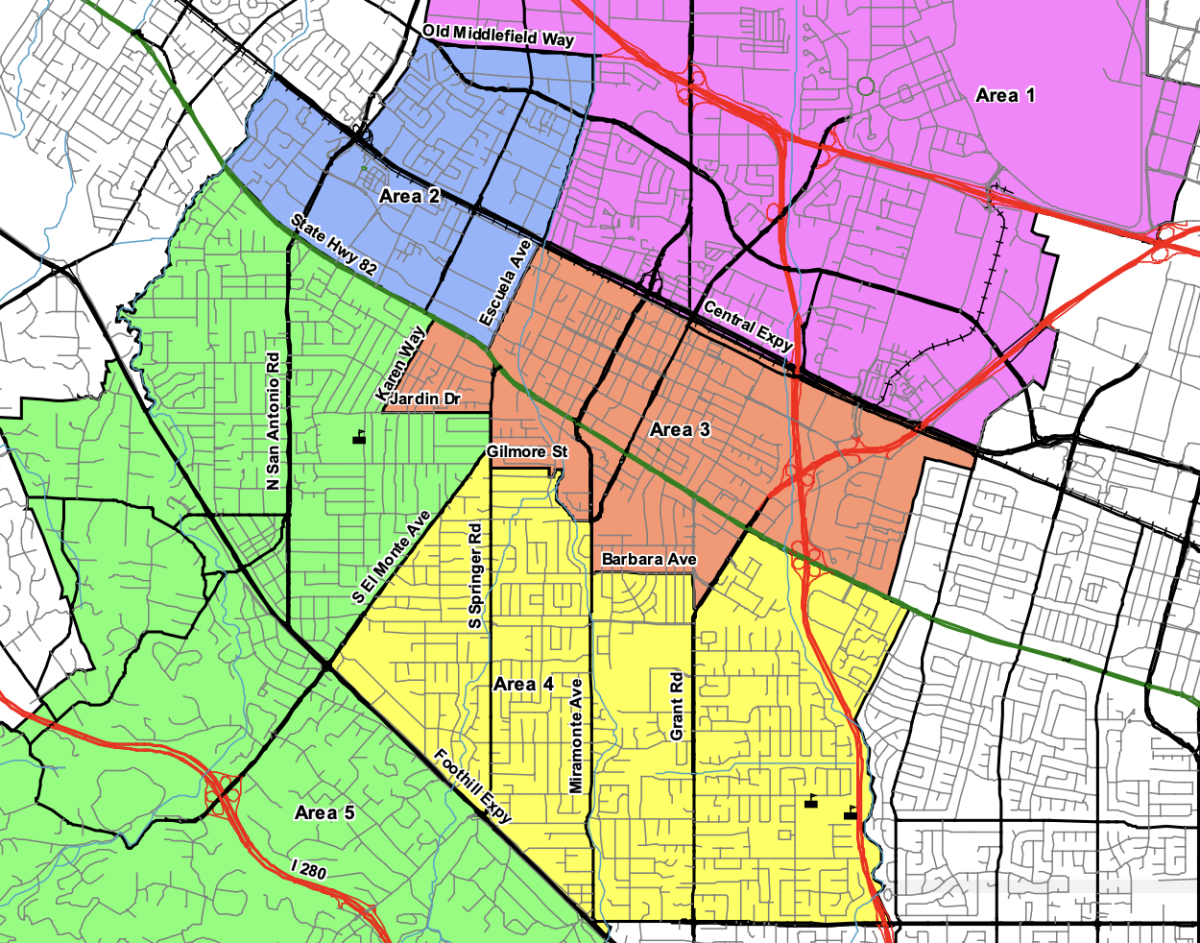1. Sequestration bill signed into effect
This past week, President Barack Obama signed the most recent plan for sequestration into effect, creating budget cuts across the board, as well as controversy.
The sequester bill is a fiscal initiative that calls for budget cuts in the country’s executive and legislative programs. Programs affected by the sequestration bill will face a 7.6 to 9.6 percent cut in federal support.
The sequester is a long term plan that spans the next nine years, during which the projected cuts will save the government $1.2 trillion.
The government put the sequestration plan into place when Congress was forced to raise the debt ceiling in 2011. As a plan for future fiscal integrity, Congress made the decision that a plan must be drafted and executed to save the US $1.2 trillion by the year 2021.
Republicans and Democrats alike fear that the sequester will bring higher unemployment rates in programs that are highly dependent on federal funding, such as the military and Medicare.
Most of the controversy surrounding the issue is based on the deep cuts to defense. Some believe that these cuts would could leave the country vulnerable to foreign attacks, especially considering the recent threats from Pyongyang, North Korea, attempting “preemptive nuclear attack.”
However, because the US spends more than the next 10 countries, combined, in defense funding, it’s unlikely that a 9.6 percent budget cut will render our defense inactive or less efficient.
2. 13-hour filibuster delays congressional processes
This past week, on Wednesday, March 6, Senator Rand Paul (R-Ky.) concluded his 13-hour-long filibuster in opposition to the appointment of John O. Brennan as the Central Intelligence Agency (CIA) head.
Part of Brennan’s terms of being delegated leadership of the CIA is the use of unmanned drone strikes of American citizens on U.S. soil.
Paul voiced his opposition to the use of drone strikes by holding the floor for 13 hours before allowing Congress to proceed in the election of Brennan to become head of the CIA.
This 13-hour speech is nowhere near the 28-hour long filibuster achieved by Strom Thurmond in opposition to the Civil Rights Act of 1957, but it has attracted great attention nonetheless.
Paul’s greatest concerns were centered on the civil liberties delegated by the Constitution. Since Brennan is a proponent of the use of drone strikes, Paul claimed in a statement of his filibuster that Americans are being denied their natural rights to life.
“What will be the standard for how we kill Americans in America?” Paul asked. “Could political dissent be part of the standard for drone strikes?”
While the filibuster may have delayed the decision, it didn’t stop Congress from appointing Brennan shortly after the prolonged speech. However, Paul’s goal was to attract the attention of the federal government and to perhaps get support in the matter of banning drone strikes of American citizens suspected of treason.
“The executive branch should not be allowed to conduct such a serious and far-reaching program by themselves without any scrutiny, because that’s not how American democracy works,” Paul said.
3. Papal conclave to commence on Tuesday
Last month, leader of Catholic Church Pope Benedict XVI resigned. This marked the first time that a pontiff has resigned in 600 years. On Tuesday, March 12, the papal conclave will congregate to begin the election of the Benedict’s successor. The College of Cardinals will continue to vote until they select a Pope unanimously.
Pope Benedict XVI has held office for nearly eight years. He points to his deteriorating health as the main reason for his resignation.
The 115 cardinals who make up the papal conclave will convene in the Sistine Chapel in the Vatican City on Tuesday. The process will start with Mass. On the first day, the cardinals will vote once. If a two-thirds supermajority decision on the next Pope is not made, they will vote four times a day, starting the next day, until they reach a consensus.
Benedict’s abdication holds certain implications due to the nature of the papacy. Holding office while a former Pope is still alive changes the nature of the new Pope’s power. To many of the 1.2 billion Roman Catholics worldwide, the Pope’s word represents the word of God. If the new Pope’s judgement contradicts a decision the former Pope had made, there will be a dilemma within the Catholic church. One of the Pope’s numerous titles is Servant of the Servants of God. To have one such Servant confute the word of another living Servant will cause a predicament that the Catholic Church has not had to face in 600 years.
Benedict will also undeniably have an effect, albeit an indirect one, on the outcome of the election that starts on Tuesday. Of the 115 cardinals who will take part in the election, 67 were appointed by Benedict during his papacy. Benedict also made various changes to the voting process during his papacy that may change the length of the voting process.
4. Bill Clinton changes his stance on DOMA just before Supreme Court hears case
On March 7, the Washington Post published an op-ed by President Bill Clinton, titled “It’s time to overturn DOMA.” The article comes only weeks before March 27, when the Supreme Court will hear a case concerning the Defence of Marriage Act (DOMA).
President Clinton signed DOMA into federal law on September 21, 1996. DOMA’s purpose is “to define and protect the institution of marriage.” It defines marriage as “only a legal union between one man and one woman as husband and wife,” and one’s spouse must be “a person of the opposite sex who is a husband or a wife.” For all federal and interstate purposes in the United States, marriage must defined as such.
DOMA changed the national atmosphere for members of the LGBT community and their allies. Before DOMA, states could decide to recognize same-sex marriage on a state level or not. Due to DOMA, a state is not required by the federal government to recognize same-sex marriage, stripping same-sex couples of the right to marriage. On a federal level, same-sex marriages can not be recognized. These couples are also restricted from marriage’s benefits including, among other things, health insurance and jointly-filed taxes.
In Clinton’s op-ed piece, he describes the chaos that surrounded the issue of same-sex marriage during his presidency. According to his article, he supported DOMA at the time in order to mitigate the desire of some conservatives to make the ban on same-sex marriage into a Constitutional amendment.
But his stance has changed. “As the president who signed the act into law, I have come to believe that DOMA is contrary to those principles and, in fact, incompatible with our Constitution,” Clinton wrote.
The Obama Administration has decided not to support DOMA in court. While this decision has no direct impact on the enforcement of DOMA, it represents the president and his administration’s support of same-sex marriage.
5. Venezuelan President Hugo Chávez’s dies
Venezuelan President Hugo Chávez died this past Wednesday, March 6, due to heart problems following complications of pelvic cancer.
Chávez’s death gave way to significant upheaval in Caracas, the nation’s capital. People stormed the streets, openly grieving their president’s mortality.
Chávez sat at the helm of the socialist revolution that had taken hold in the past 14 years of his presidency. Many Venezuelans are unsure of the implications of Chávez’s death and its meaning for the future of Venezuela and South America as a whole.
Since Chávez died in such proximity to his election as president, a new election is being held. For now, Chávez’s vice president Nicolás Maduro will serve as interim president.
Chávez’s death has put the U.S. under fire from Venezuelan nationalists, who claim that Americans found a way to cause Chávez’s cancer as a way of destabilizing the socialist regime.
U.S. representatives immediately rejected such claims, and followed up to say that in the future, the U.S. would be interested in pursuing closer ties with Venezuela, despite the differences in political philosophies between the two nations.
While some are worried that the revolution the Chávez inspired will wither in his absence, others are confident that the revolution has gained too much momentum to be quelled. The revolution includes unifying Latin America to become autonomous of U.S. influence, both politically and economically.








